
Polarity components require special attention throughout the PCBA processing, as incorrect orientation can lead to mass failures and the complete failure of the PCBA board. Therefore, it is crucial for engineering and production personnel to understand SMT polarity components.
1. Definition of Polarity
Polarity refers to the positive and negative terminals of a component or the first pin aligned with the positive and negative terminals on the PCB (Printed Circuit Board). If the orientation of the component does not match that on the PCB, it is referred to as reverse polarity failure.
2. Methods for Identifying Polarity
1. Chip Resistors (Resistor) – Non-Polarized
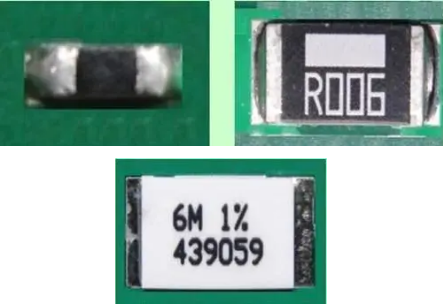
2. Capacitors (Capacitor)
2.1 Ceramic Capacitors – Non-Polarized
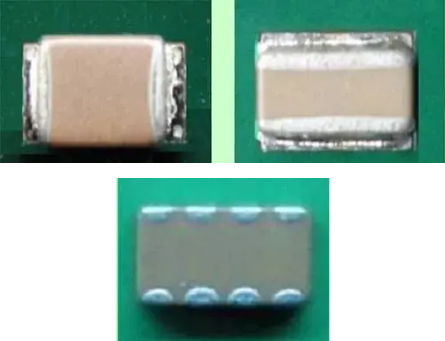
2.2 Tantalum Capacitors – Polarized
PCB and component positive terminal markings: 1) Color band; 2) “+” sign; 3) Diagonal marking.
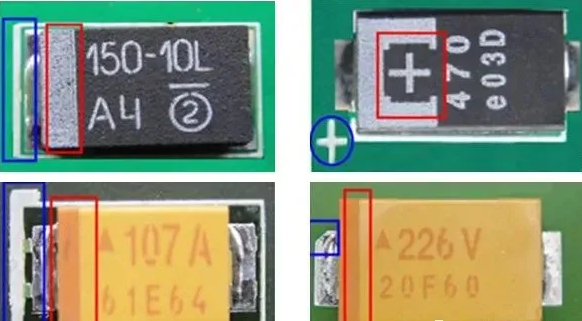
2.3 Aluminum Electrolytic Capacitors – Polarized
Component marking: Color band represents negative; PCB marking: Color band or “+” sign represents positive terminal.
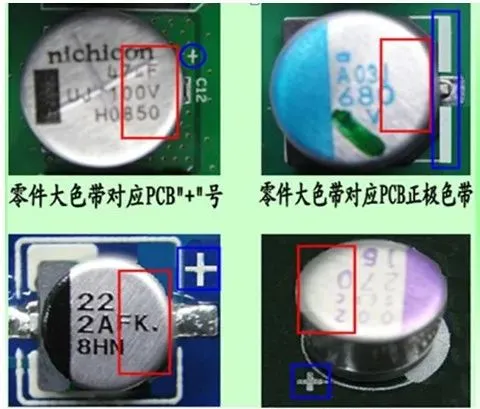
3. Inductors (Inductor)
3.1 Chip Coils
Chip inductors and similar two-terminal packages have no polarity requirements.
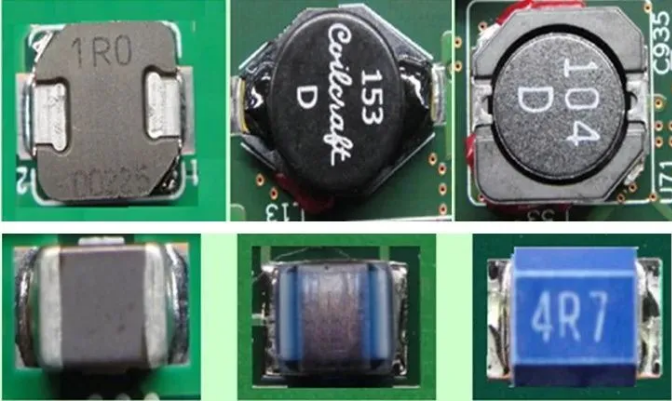
3.2 Multi-Pin Inductors
Multi-pin inductors have polarity requirements. Component marking: Dot/“1” represents polarity point; PCB marking: Dot/Circle/“*” represents polarity point.
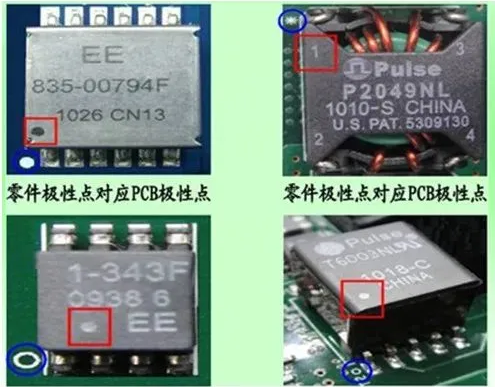
4. Light Emitting Diodes (LED)
4.1 SMT Surface-Mount LED
Surface-mount LEDs are polarized.
- Component negative terminal marking: Green indicates negative;
- PCB negative terminal marking: 1) Vertical bar; 2) Color band; 3) Silkscreen pointed corner; 4) Silkscreen “匚” frame.
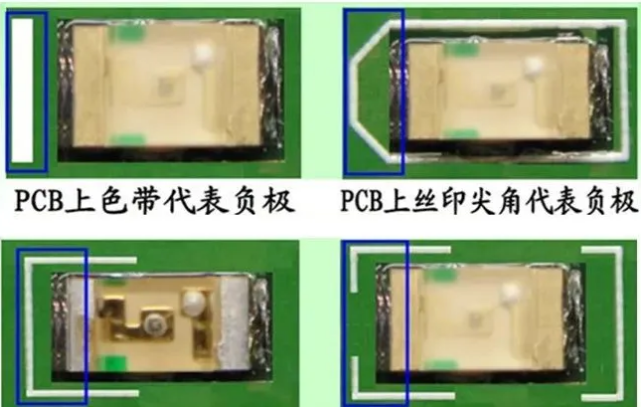
5. Diodes (Diode)
5.1 SMT Surface-Mount Two-Terminal Diodes
Surface-mount two-terminal diodes are polarized.
- Component negative terminal marking: 1) Color band, 2) Groove, 3) Color marking (glass body);
- PCB negative terminal marking: 1) Vertical bar marking, 2) Color band marking, 3) Silkscreen pointed corner marking, 4) “匚” frame marking.
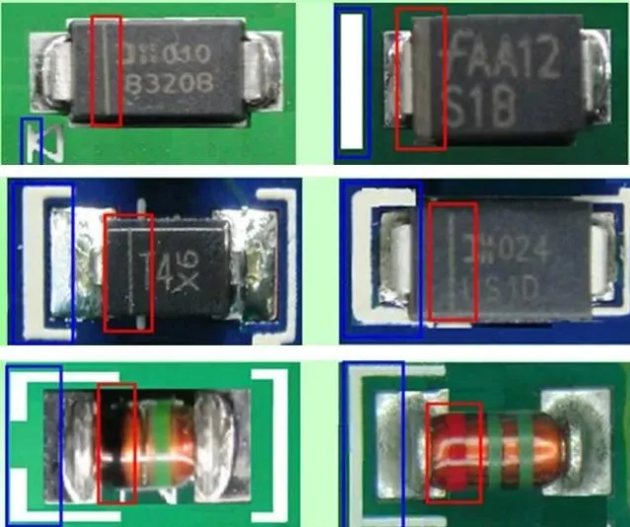
6. Integrated Circuits (Integrated Circuit)
6.1 SOIC Package Type
This type of package is polarized. Polarity markings: 1) Color band, 2) Symbol, 3) Dimple/Groove, 4) Slanted edge.
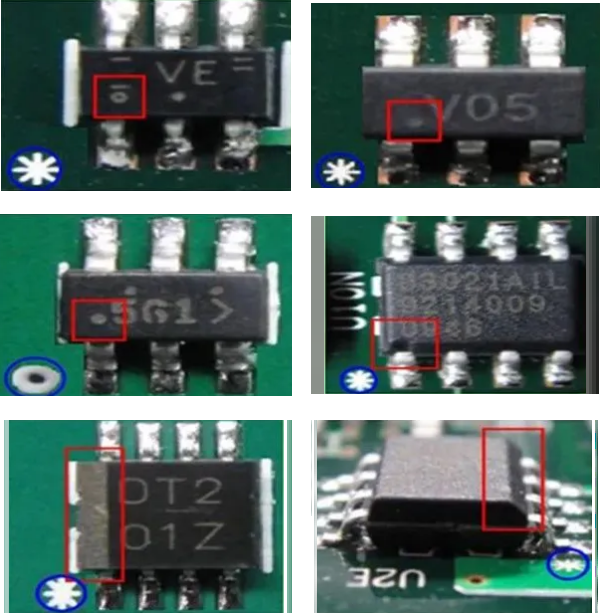
6.2 SOP or QFP Package Type
This type of package is polarized. Polarity markings: 1) Dimple/Groove marking, 2) One point differs in size/shape from the other two/three points.
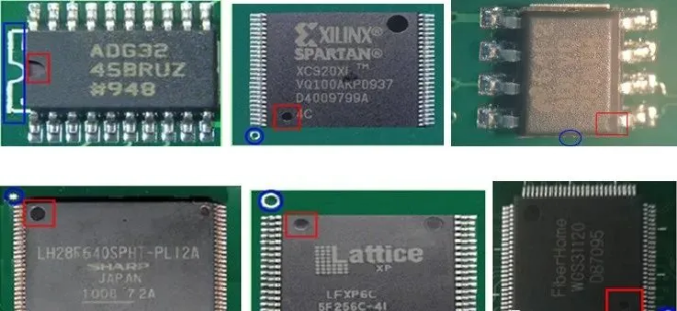
6.3 QFN Package Type
This type of package is polarized. Polarity markings: 1) One point differs in size/shape from the other two points, 2) Slanted edge marking, 3) Symbol marking (horizontal bar/“+” sign/dot).
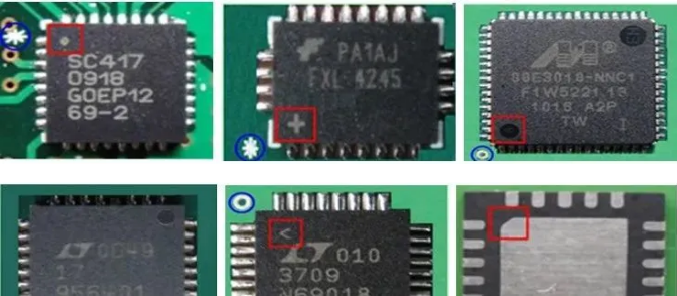
7. Ball Grid Array (BGA)
- Component polarity: Dimple/Groove marking/Circle marking;
- PCB polarity: Circle/Dot/Letter “1 or A”/Slanted marking.
- Component polarity point corresponds to the PCB polarity point.
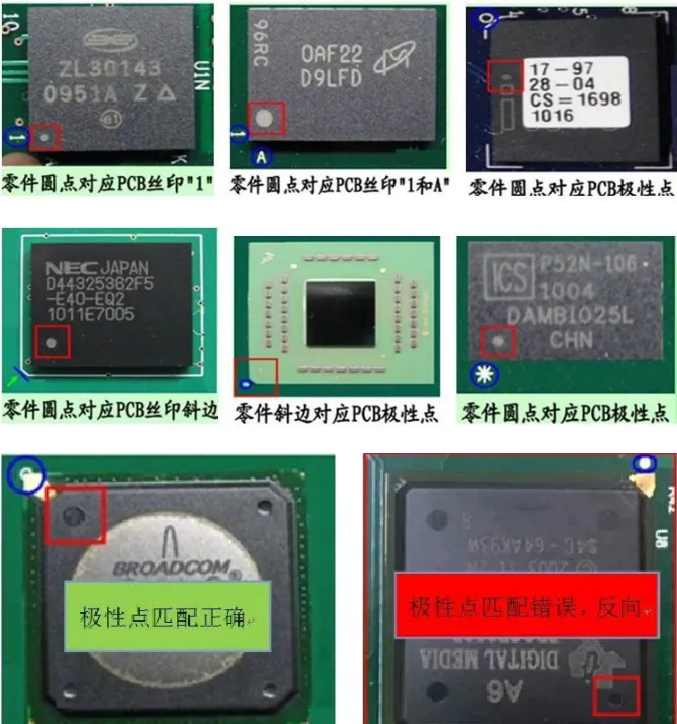

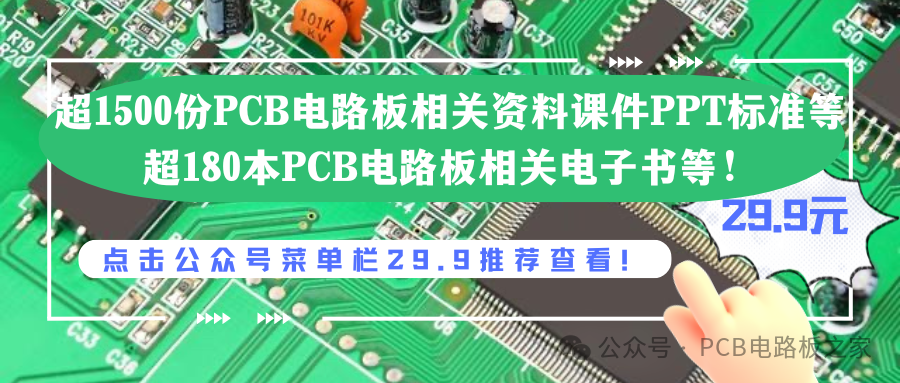
Some Screenshots from Electronic Books

【Complete Set of Hardware Learning Materials Collection】
